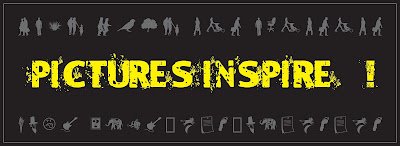As a rule, I do not sit in front of the television with the express intention of watching programs or movies. However, a couple of days back, I happened to catch parts of a few TV serials, entirely by accident.
There was a time in Hindi cinema and television when a story revolved around a central character or two. Almost invariably, this protagonist was an upright individual with a profoundly positive outlook, dedicated to helping those around them, which made them the hero or heroine of the narrative. We had a wealth of stories that truly inspired us, nourished our minds and helped us think wisely. Many of us learned valuable life lessons through these tales of integrity, perseverance and simple human goodness.
Today, the picture is starkly different. The way people make movies and serials has changed and so has the capacity of this media to make a positive change in people.
After reading reviews and observing these serials, I found that most now feature cruel and cunning characters who dominate the narrative, while the simple and honest ones suffer endlessly. It seems the primary dramatic engine is no longer human aspiration but human depravity. The long-suffering daughter-in-law, the perpetually scheming matriarch, the duplicitous business partner—these have become the archetypes of modern primetime. The casts are awarded for their efforts in bringing these age-old issues of domestic strife and deceit to the screen as if they were novel concepts and production houses profit by capitalizing on the time of countless viewers, particularly the women in our homes.
If we dig a little deeper to find the reason behind this shift, we will likely encounter one recurring justification: “We need something new, we need change.” They say change is good, but I hardly see evidence of that here. Instead, I see bad things changing to become worse and good things slowly vanishing. In this rapidly changing world, we are so preoccupied with entertaining our hearts that we forget the wholesome things that were once close to that very same heart. In the entire process of these shifting pictures before our eyes, we end up altering our own frame of mind with each passing moment.
This instability seeps into our lives. We are no longer sure if our children will return home in the evening with the same mindset they had when they left in the morning. Children are unsure what might trigger their dad’s mood in the next moment. Wives are apprehensive about the fluctuating thoughts of their husbands and husbands are no longer surprised by their wives’ frequently forgotten decisions. The constant on-screen diet of suspicion and conflict subtly erodes the foundation of trust in our own relationships.
This fast-paced, picturesque world is largely responsible. More movies, more serials, more reality shows and more news are being produced than ever before, with more channels coming up to air them. The last decade has likely produced more content than all of history combined. Unsurprisingly, it has a bigger impact too; at least, the viewership data says so.
King David wisely said, “I will set nothing wicked before my eyes.” I am sure he understood the profound truth that what we see invariably affects our thoughts, which in turn shape our actions and ultimately, our lives.
Can I not be sensible enough to consider what is placed before my own eyes and be careful about how it inspires me? It truly depends on what I choose to see. Oh, how the pictures inspire me!
In India, thousands of hours are wasted in front of the “idiot box” or in cinema halls, pondering countless useless things long after the screen goes dark. This time is a void where reflection, family conversation or productive hobbies could exist. Do I really need to explain what the ultimate outcome of this is? A society that is entertained but not enriched, connected by screens but disconnected in spirit.


Beautifully Crafted.. Kudos!! Hope people do understand how this Entertainment Business is deteriorating our lives..